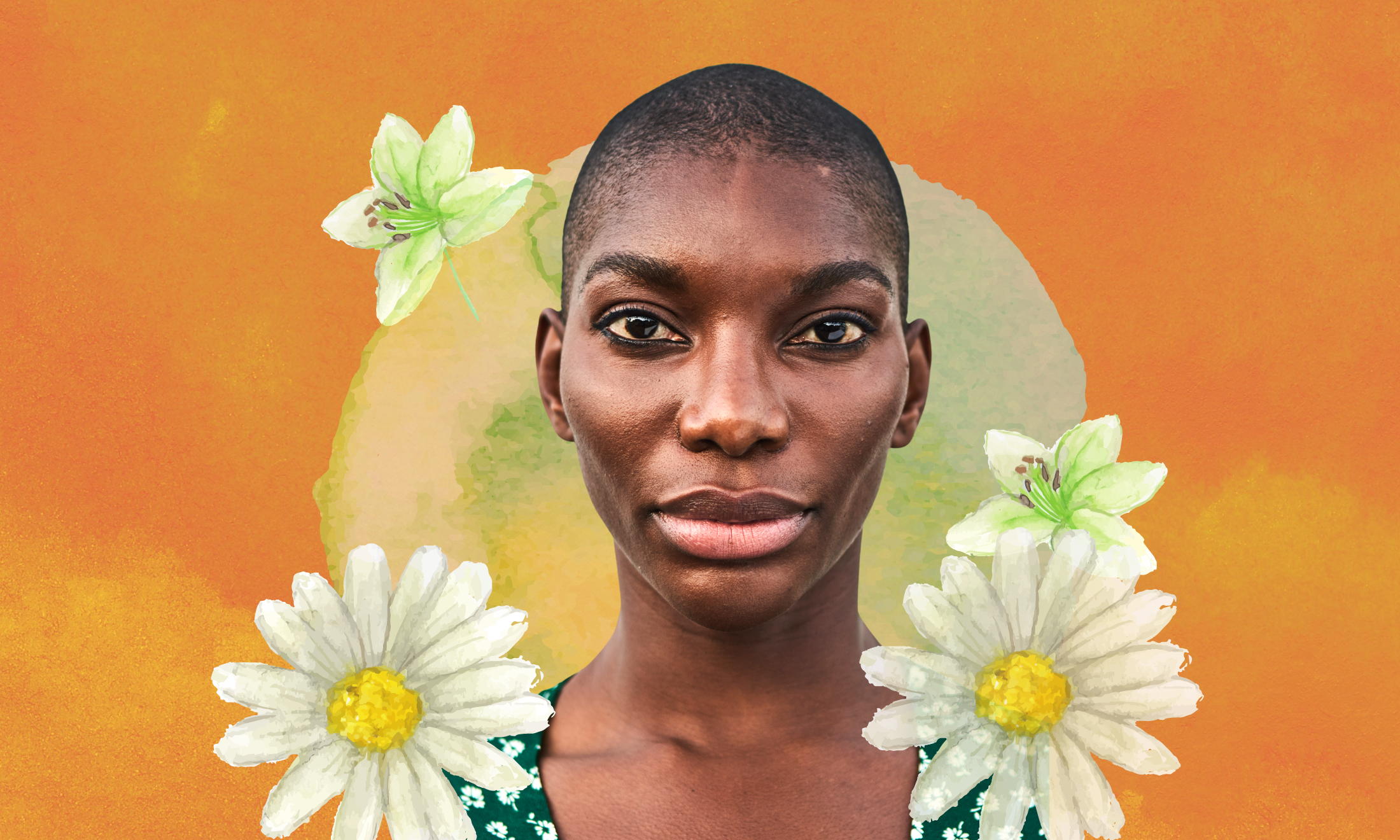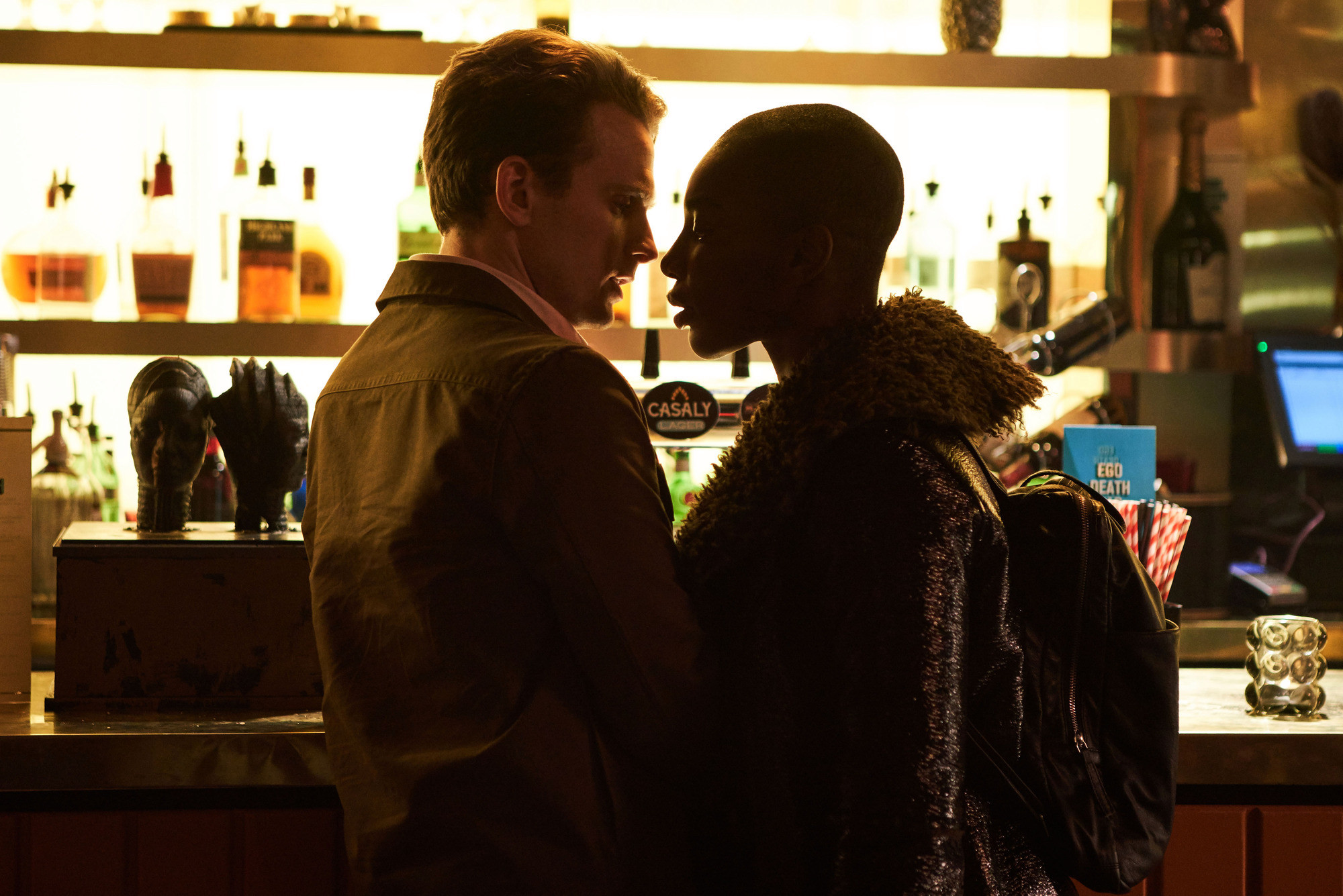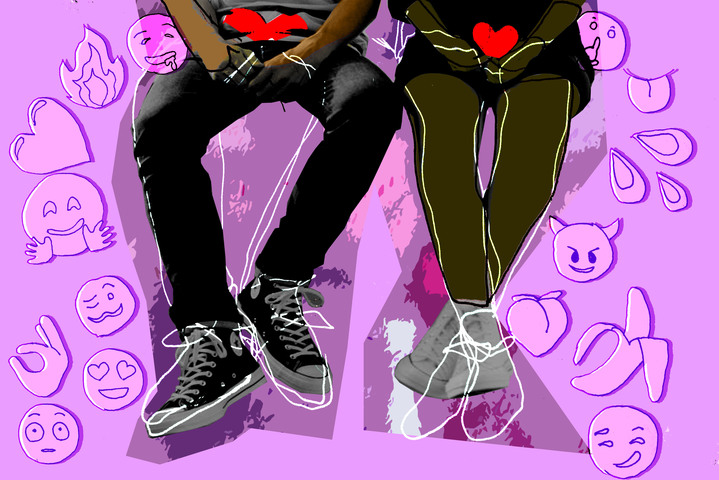
Michaela Coel on discovering racism via a letterbox shit, resisting coconut slurs and fighting bullies
Misfits sees the acclaimed writer and actress publish a manifesto to overcome feeling like you don't fit in
Sagal Mohammed
07 Sep 2021
TW: This article makes reference to sexual assault
We’ve all got different coping mechanisms when it comes to processing our experiences. Some find solitude in the creative outlets of others, like listening to a song that speaks to your darkest thoughts or reading a book that feels like someone has held a mirror up to your soul. Then there are those who create these forms of art: the people who find peace in channelling their pain and trauma into a craft that helps them heal whilst providing comfort for others. Michaela Coel is one of those people. “I’m very uncomfortable in the work that I do if I’m not being completely vulnerable in it,” she says, over the phone. “I have to feel like what I’m putting out there is leaving me in a vulnerable position because then there’s cost and there are stakes. The stakes have to be high.”
Michaela is an introspective and refreshingly honest individual by nature – qualities I pick up on mere minutes into our conversation. Her 2020 drama I May Destroy You saw the multi-hyphenate star turn her most intimate experience of trauma into a TV masterpiece as she let the world into the sobering aftermath of an incident in her 20s, where she was drugged and raped by a stranger, via the fictional character she plays, Arabella. The BAFTA-winning series, which aired on HBO in the US and received four Emmy nominations, invited scrutiny into the worst days of Michaela’s life. It’s an experience few would want to revisit, even in the name of art. But for 33-year-old Michaela, it was a necessity.
But before she wrote this hit show, Michaela wrote her new book, Misfits: A Personal Manifesto. A precursor to I May Destroy You, the book is a reworked and expanded version of Coel’s hour-long MacTaggart Lecture delivered at the Edinburgh Television Festival in 2018. The short and sharp piece of nonfiction once again shows Michaela as the magnificent thinker she is, as she recounts the nuanced pieces of her life that have led to the path she stands in today. It covers moments from her adolescent life on the South London estate she was raised on, where she and her Ghanaian family were one of four Black residents – much of which inspired her 2015 debut drama, Chewing Gum – to reflections on her time in drama school and experiences with racism, feminism, accountability and ultimately the assault that shaped the premise of her critically-acclaimed show. As for the book’s title, Michaela explains: “To me, a misfit is someone who looks at life in an unconventional way or a way that society deems unconventional and that’s what I do.”
“Maybe this is something that is unique to the Black community, but whenever someone comes in from the outside of that specific community and something about them doesn’t quite fit, we have these very interesting ways of treating them.”
She calls me from Atlanta, where she is filming Black Panther: Wakanda Forever, the sequel to Ryan Coogler’s 2018 Marvel hit. Her casting was publicly announced back in July to a warm reception of excited fans, though she’s having to remain tight-lipped about the details, including her new character. She’s also visiting family in Memphis, Tennessee, that she hasn’t seen in over 17 years (“The first day was a bit awkward, but then before you know it, you just fall back into it”).
Despite it being Michaela’s first literary venture, Misfits is profound, hilarious, devastating and breathtakingly beautiful all at once. There are moments where her signature quick-wit will make you laugh, like when she somehow illustrates growing up in poverty through a humorous and heart-warming childhood anecdote in which a man named Willy, who she describes as “the miracle of [her] estate”, throws a handful of unwrapped penny sweets down to the kids, who desperately scrabble to get their hands on one, despite it being covered in dirt from the pavement. “The point was you got a sweet today and other people didn’t,” she writes. “Are you chewing? ‘Iss lit.’ You’re lit.”
But there are also parts that’ll leave you furious, like her recollection of the time her family received a bag of shit through their letterbox in a racially charged attack. “As a precocious busybody, I felt I had no choice but to take things into my seven-year-old hands,” she writes. “I walked around the estate, swung on the swing, desperate for transparency, wondering, Who?… Who are the enemies of my family?” The image of a seven-year-old Coel trying to suss out the culprits in an attempt to defend her family is both comical and heartbreaking. It also paints an accurate picture of her behaviour as a child. “I was a very aggressive 10-year-old,” she admits. “I used to fight a lot in primary school and on my estate because I’d get bullied.”
“We 11-year-olds learnt the rules quickly: from nine to three, laugh or be laughed at, and after three? Go home, to your room, and cry.”
It wasn’t until she reached secondary school that Coel put her fists down, replacing them with her sharp tongue. In the book, she describes the rule for survival at her all-girls Catholic school: “We 11-year-olds learnt the rules quickly: from nine to three, laugh or be laughed at, and after three? Go home, to your room, and cry.” She became the first to laugh at herself, pointing out all the things she was made fun of (her big lips and dark skin tone were always a topic of conversation) before the bullies had a chance. “I don’t know what changed but it must have been that the calibre of bullies in secondary school was so high that having a good old scrap wasn’t going to work for me anymore,” Michaela tells gal-dem. “I can’t remember what first provoked me to laugh at myself or join in with the bullies when they were insulting me but my friends would say that it was a defence mechanism, which I never really thought about until a friend brought it up a couple of months ago.”
Michaela touches on the racist abuse she has faced on many occasions in Misfits, often describing it in a very blasé tone to convey how banal and incessant it was in her environment. When her neighbour calls her a “dirty nigger” in retaliation to Michaela calling her an “ugly wanker,” she casually refers to it as “just our way of expressing our mistrust and fear of those who were visually or culturally different.” One racial slur she unpacks, however, is the term “coconut,” an insult used to describe Black people who are deemed “white on the inside” and brown on the outside (like the fruit). Michaela was called this a lot growing up.
“Maybe this is something that is unique to the Black community, but whenever someone comes in from the outside of that specific community and something about them doesn’t quite fit, we have these very interesting ways of treating them,” Michaela says saying the term is used too often. “It’s like when a Black or mixed-race person who was raised in the countryside – where they were already taking all of the Black abuse on the behalf of all of us – moves to London, we treat them as ‘other’. Just because they sound a bit different or are doing something different. It’s still a big problem in our community, to the point where I’ve had to tell some of my own friends to settle down when they make those types of comments.”
Being “othered” is something Michaela also felt much of during her time at the prestigious Guildhall School of Music and Drama, where she was the first Black woman student they’d had in five years after winning a scholarship. She remembers the lack of belief her teachers had in her and the burden that came with what was supposed to be her golden ticket to a Hollywood acting career, like making herself palatable in white-dominated spaces and having her talents constantly overlooked. “Sometimes I think, who would I have been if I’d received encouragement from my drama school?” she says. “I met Paapa Essiedu there who is a brilliant man, so I can look at the friends I made there. However, I sometimes wonder how my life would have turned out at a different drama school with teachers who actually believed in me and saw me. I would have been a superhero,” she adds, with a laugh.
If there’s one thing to note about Michaela, it is that she’s unafraid of being inquisitive and always self-reflecting. In the introduction to Misfits, she asks an important question: “How am I able to be so transparent on paper about rape, malpractice and poverty yet still compartmentalise?” Throughout the book, we get glimpses of the answer to this, taking us back to the idea of using creativity as a therapeutic outlet for personal pain and trauma. “I think it’s a coping mechanism,” she says. “It’s a way to distance ourselves from what the reality of our lives are whilst also being aware of what’s going on. It’s something our brains do to keep us alive and OK. I think it’s only problematic if you don’t know that and you’re doing it to suppress whatever it is that you’re feeling.”
The ability to navigate her emotions in this way, paired with her incomparable talent, has seen Michaela’s career turn out pretty spectacularly. Not only is she a BAFTA, Royal Television Society, Broadcasting Press Guild and NAACP prize-winning actor, screenwriter and director, but last year, TIME magazine listed her as one of their 100 most influential people of 2020. “Everyone thinks that my life changed after I May Destroy You but everything still feels very normal,” she insists. “I’m not being stopped on the street every five minutes or anything like that.” With the release of her debut book, which is out on 7 September, and her first major Hollywood film role in Black Panther, the self-declared misfit probably won’t be saying that for much longer.









